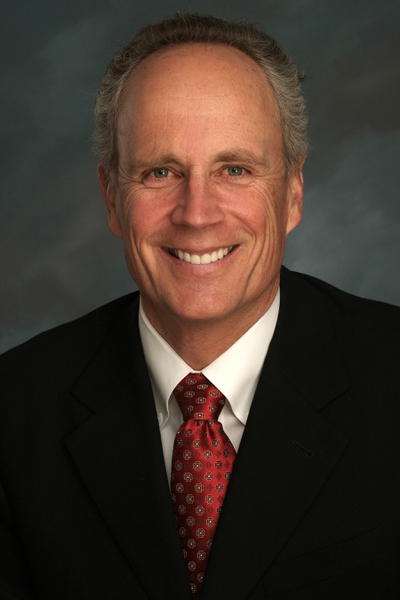Sitting near the headwaters of the Colorado River, Denver seems like it would have little reason to worry about the drought that has parched Las Vegas and the Southwest.
But Jim Lochhead, the head of Denver’s water utility, says that’s not the case. If the water supply on the river worsens, Denver could end up losing some of its drinking supply to keep the rest of the West wet.
“Literally everything that happens from Mexico all the way up to Denver is interconnected and affects us,” said Lochhead, chief executive officer of Denver Water.
Lochhead is in Las Vegas this week to discuss the Colorado River at the Business of Water Summit 2.0 at Springs Preserve.
The event will draw top water leaders, including Southern Nevada Water Authority General Manager John Entsminger, Brookings Institute Mountain West senior fellow Pat Mulroy and U.S. Sen. Harry Reid. Companies including NV Energy, Caesars Entertainment, Coca Cola and KB Homes also will be there.
The Sun spoke with Lochhead to discuss how the West's water crisis is playing out in Denver and what role businesses will play in finding solutions. His answers have been edited for clarity and brevity.
Las Vegas uses Colorado River water for 90 percent of its water supply. How is the river water used in Colorado?
Colorado River water is about half of Denver’s water supply. We obviously use a lot of Colorado River water for irrigation in western Colorado as well as to support the Colorado ski industry.
What challenges does a dwindling Colorado River pose for Colorado?
The biggest concern in Colorado and the upper basin states is the potential for what we call a “compact call,” which is when we can’t meet our water obligation to the lower basins.
If we get to that situation on the river, it’s not just a Las Vegas problem or an upper basin problem. If the river’s to that point, then potentially we lose half of Denver’s water supply.
The summit this week is looking at the relationship between water and business. What’s the link between the two?
If we can’t produce a secure water supply into the future, it’s pretty tough for businesses to look at locating in our communities.
It’s our responsibility to make sure we can assure business that there’s going to be a secure water supply that will support economic development in the future.
What do businesses gain by working to conserve and protect the water supply?
Directly, businesses know they can invest in Western urban areas, that they can locate their businesses there and know there’s low-cost and dependable water.
It obviously affects their employees and their ability to attract high-quality employees.
Part of that vibrancy of Colorado’s economy is in part due to the fact that we have a relatively inexpensive, high-quality and secure water supply.
What can businesses do to help address water issues?
In Denver, we’re working with businesses on ways to save water — things like cooling towers for high-rise developments or re-use technologies at a small scale like rainwater capture or graywater re-use.
It’s important for us as water utilities that the business community understands why we charge the rates we charge and the investments we need to make. As we get into these situations on the river where we face potential shortages, we need to be working together. We need the support of the business community from a political perspective to be able to do that.
Reducing water use by businesses and in urban areas will help protect the river, but it’s not enough to reverse the decline. What else needs to be done?
We need a real partnership between urban utilities and agriculture. We are in the process of working on that. Denver Water has partnered with the Southern Nevada Water Authority, the Metropolitan Water District of Southern California and the Central Arizona Project on a system conservation agreement together with the Bureau of Reclamation where we’re putting up money to work with agriculture to manage and conserve water on the river to contribute to a more stable water supply.
If we get into a competitive situation between the municipal sector and the agricultural sector and the recreational sector, then we all lose.



Join the Discussion:
Check this out for a full explanation of our conversion to the LiveFyre commenting system and instructions on how to sign up for an account.
Full comments policy